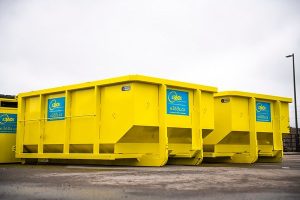
Home renovations are a fantastic way to revitalize your living space and increase your property’s value. However, amidst the excitement of transforming your home, it’s crucial not to overlook the health and safety aspects of the project. Additionally, responsible waste disposal is a significant component of any home renovation that often gets neglected. In this blog, we will explore essential tips for ensuring health and safety during home renovations and provide guidance on proper waste disposal methods.
- Plan Your Renovation with Safety in Mind
Safety should be at the forefront of your renovation project. Before you start, take the following steps:
- Risk Assessment: Identify potential hazards in your home, such as asbestos, lead paint, or structural issues. Hire professionals to conduct tests if needed.
- Safety Gear: Invest in proper personal protective equipment (PPE), including dust masks, gloves, safety glasses, and hearing protection.
- Emergency Preparedness: Ensure you have easy access to first aid supplies and emergency contact information.
- Protect Your Indoor Air Quality
Maintaining good air quality during renovations is vital for your health:
- Ventilation: Keep windows and doors open to allow fresh air to circulate throughout the renovation area.
- Air Purifiers**: Use air purifiers equipped with HEPA filters to help remove airborne particles, dust, and fumes.
- Dust Control
Dust is a common byproduct of renovations and poses health risks:
- Containment: Seal off the renovation area with plastic sheeting to prevent dust from spreading to other parts of your home.
- Wet Methods: Use wet methods, such as spraying surfaces with water, to minimize dust when sanding or cutting.
- Regular Cleaning: Clean up dust regularly to maintain a safe and clean environment.
- Electrical Safety
Electrical work is common during renovations and requires special attention:
- Turn Off Power: Always switch off the electricity to the area where you’re working to prevent electrical shocks or fires.
- Professional Help: Consult with a licensed electrician for complex electrical tasks.
- Structural Integrity and Permits
Ensure that structural changes are done safely and with the proper permits:
- Consult a Structural Engineer: Seek advice from a structural engineer when altering load-bearing walls or making significant structural changes.
- Permits**: Obtain necessary permits and inspections to meet local building codes.
- Responsible Waste Disposal
Proper waste disposal is not only environmentally responsible but also contributes to a safer workspace:
- Separate Waste: Sort your waste into different categories, such as recyclables, hazardous materials (paints, solvents), and general waste.
- Hazardous Materials: Dispose of hazardous materials, like paints and solvents, at designated disposal centers or contact a waste management company for help.
- Recyclables: Recycle materials like cardboard, glass, metal, and plastics through your local recycling program.
- General Waste: Bag non-recyclable and non-hazardous waste securely and place it in your regular trash collection.
- Rent a Roll-Off or Dumpster Bin
For larger renovations, consider renting a Roll-Off or Dumpster bin:
- Convenience: Bins provide a convenient and centralized location for waste disposal.
- Efficiency: They make it easier to segregate waste types and ensure that waste is properly contained.
- Donate or Reuse
Whenever possible, consider donating or reusing materials:
- Donations: Items in good condition can often be donated to local charities or reused in other renovation projects.
- Recycle: Look for recycling options for materials like old appliances, fixtures, and building materials.
By following these guidelines, you can ensure a safe and responsible home renovation project that not only enhances your living space but also minimizes environmental impact. Remember that responsible waste disposal is not only essential for health and safety but also contributes to a sustainable and eco-friendly renovation process.